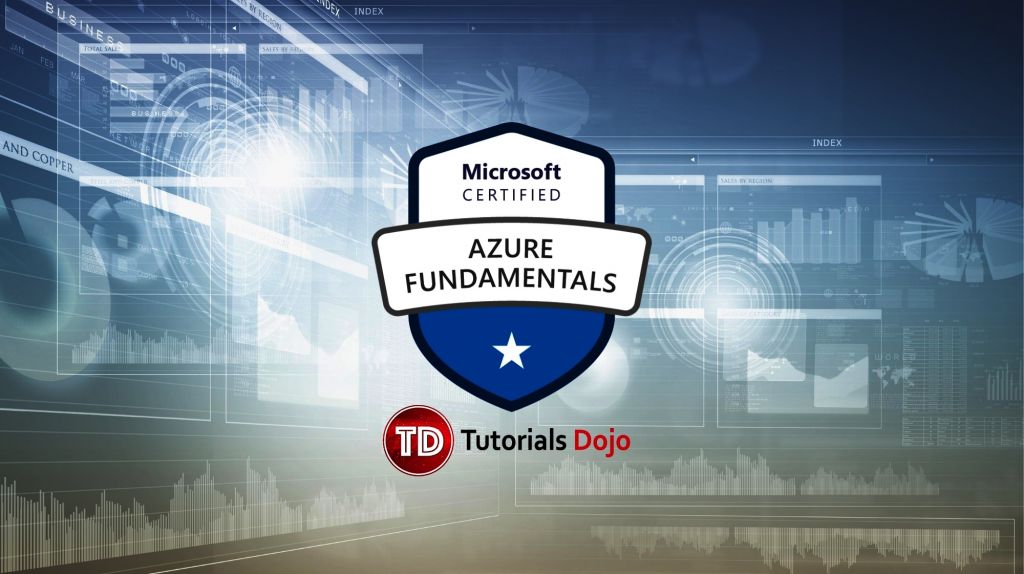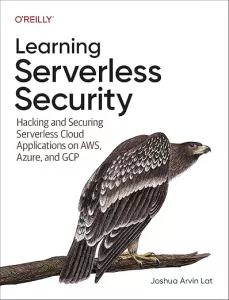Last updated on July 12, 2023
The AZ-900 Microsoft Azure Fundamentals certification exam is intended for individuals who want to have a foundational knowledge when venturing into the Cloud. Although the AZ-900 test is the easiest to achieve among all the Azure certification exams, you still need to learn and properly understand the concepts on cloud computing, and know the basics on the Azure services.
In the Microsoft Azure Fundamentals Exam (or AZ-900 for short), questions will test your ability to:
- Describe Cloud Concepts
- Describe Core Azure Services
- Describe Core Solutions and Management Tools on Azure
- Describe Management Tools and Network Security Features
- Describe Identity, Governance, Privacy, and Compliance Features
- Describe Azure Cost Management and Service Level Agreements
Given the scope of the exam above, you should also be familiar with the concepts of compute, storage, networking, application support, and application development. This guide aims to help you pass your exam on your first try.
Study Materials
The primary study materials that you can use for your review are: Azure Fundamentals Learning Path, Azure Documentation, Tutorials Dojo’s Azure Cheat Sheets, and our AZ-900 Practice Exams.
Having an Azure account will help you better understand the concepts written within the documentations, since the exam itself contains different types of questions (multiple-choice, drag and drop, hotspot, and dropdown) to test your knowledge on these services.
Additional details regarding your AZ-900 exam can be found in this Azure Exam Skills Outline.
To learn more about each of the AZ-900 exam domains, you can take these free training materials from the Microsoft site:
- Explore Microsoft Azure cloud concepts – learn and understand the fundamentals of the Azure platform.
- Distinguish Microsoft Azure Core Services – explore the core products and solutions in Azure.
- Understand the various management tools from Microsoft Azure – learn how to choose the appropriate tools and services to address different kinds of business challenges.
- Securing your data in the cloud – know the security best practices to ensure your resources in the cloud are safe and secured.
- Examine Microsoft Azure security, privacy, compliance, and trust – study the basics of how you can secure access to your applications, the difference between authentication and authorization, and various security tools to protect your account.
- Review Microsoft Azure pricing, service level agreements, and lifecycles – explore the factors that affect your cost when using Azure services.
Azure Services to Focus On
Azure offers extensive documentations and various learning paths for all of their services. Knowing the basic concepts and Azure services will help you easily pass the AZ-900 exam, which can pave the way towards a rewarding career in cloud computing. I suggest that you read Tutorials Dojo’s Azure Cheat Sheets, which provide bullet-point summaries of the most important concepts about the different Azure services.
Concepts that you need to focus on:
- Cloud Concepts – You should be able to understand the various concepts in cloud computing, such as benefits, economies of scale, deployment models, and types of cloud services.
- Compute – Study the different types of compute services, and their use cases.
- Storage – Azure offers many types of storage services, depending on your needs. Understand what these types are and how they differ from each other.
- Network – This is the fundamental building block in launching your resources. Study the different types of networking services and the features each of them supports.
- Security – Understand how you can secure your account in Azure. You also need to know the various security services that you can use in different scenarios.
Aside from these, you should know the differences between Azure Portal, CLI, Powershell, and Cloud Shell. It’s also important to familiarize yourself with the portal’s interface since there are questions that show an image of the portal and ask you to select the answer that matches the image.
Validate Your Knowledge
After going through the training and reading materials we gave above, we recommend taking a practice exam first before booking your AZ-900 exam. Tutorials Dojo offers a top-notch set of AZ-900 Microsoft Azure Fundamentals practice tests. Combined with our study guide and cheat sheets eBook, we’re confident that these will help you pass the exam.
Sample Practice Test Questions:
Question 1
A company is planning to deploy its suite of enterprise applications to Microsoft Azure, where each application has several dependencies and subcomponents. The company must also control and manage the patching activities of the underlying operating system of the servers.
What type of cloud deployment solution should you recommend?
- Infrastructure as a Service (laaS)
- Platform as a Service (PaaS)
- Software as a Service (SaaS)
- Functions as a service (FaaS)
Question 2
Note: This item is part of a series of questions with the exact same scenario but with a different proposed answer. Each one in the series has a unique solution that may, or may not, comply with the requirements specified in the scenario.
A company is migrating all its applications and data to Microsoft Azure. There is a strict requirement that the Azure environment must only be comprised of platform-as-a-service (PaaS) solutions to minimize the amount of administrative effort in managing the underlying resources.
Solution: Deploy the applications using the Azure App Service and migrate the data to Azure SQL databases.
Does this solution comply with the requirement?
1. Yes
2. No
For more Azure practice exam questions with detailed explanations, check out the Tutorials Dojo Portal:
You should get some rest before the day of your exam and review any notes that you have written down. Since the AZ-900 exam is not composed of scenario-based questions and case studies, the exam itself should be straightforward.
All the best!






















